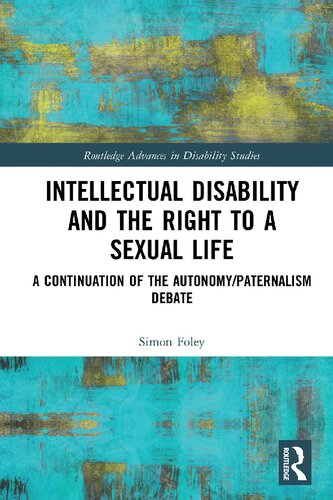

Most ebook files are in PDF format, so you can easily read them using various software such as Foxit Reader or directly on the Google Chrome browser.
Some ebook files are released by publishers in other formats such as .awz, .mobi, .epub, .fb2, etc. You may need to install specific software to read these formats on mobile/PC, such as Calibre.
Please read the tutorial at this link. https://ebooknice.com/page/post?id=faq
We offer FREE conversion to the popular formats you request; however, this may take some time. Therefore, right after payment, please email us, and we will try to provide the service as quickly as possible.
For some exceptional file formats or broken links (if any), please refrain from opening any disputes. Instead, email us first, and we will try to assist within a maximum of 6 hours.
EbookNice Team

Status:
Available4.7
24 reviewsOne of the perennial political/philosophical questions concerns whether it is ever justifiable for a third party to paternalistically restrict an adult’s freedom to ensure their own, or society’s, best interests are protected. Wherever one stands on this debate it remains the case that, unlike their non-impaired contemporaries, many intellectually disabled adults are subjected to a paternalistic regime of care. This is particularly the case regarding members of this population exercising more control of their sexuality.
Utilizing rare empirical data, Foucault's theory of power and Kristeva’s concept of abjection, this work shows that many non-disabled people – including family members – hold ambivalent attitudes towards people with visible disabilities expressing their sexuality. Through a careful examination of the autonomy/paternalism debate this is the first book to provide an original, provocative and philosophically compelling analysis to argue that where necessary, facilitated sex with prostitutes should be included as part of a new regime of care to ensure that sexual needs are met.
Intellectual Disability and the Right to a Sexual Life is essential reading for scholars, students and policy-makers with an interest in philosophy, sociology, political theory, social work, disability studies and sex studies. It will also be of interest to anybody who is a parent or a sibling of an adult with an intellectual disability and those with an interest in human rights and disability more generally.